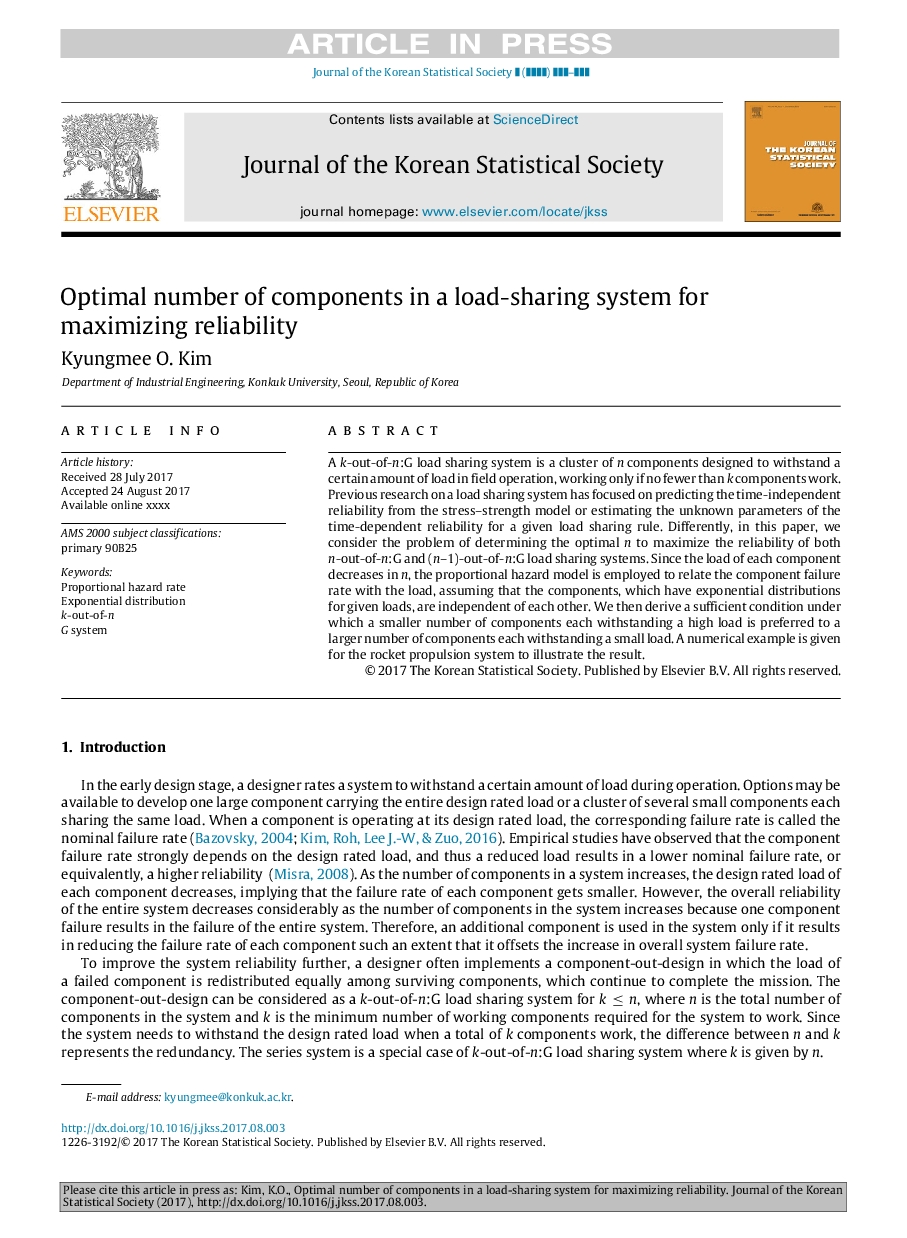| Article ID | Journal | Published Year | Pages | File Type |
|---|---|---|---|---|
| 7546200 | Journal of the Korean Statistical Society | 2018 | 9 Pages |
Abstract
A k-out-of-n:G load sharing system is a cluster of n components designed to withstand a certain amount of load in field operation, working only if no fewer than k components work. Previous research on a load sharing system has focused on predicting the time-independent reliability from the stress-strength model or estimating the unknown parameters of the time-dependent reliability for a given load sharing rule. Differently, in this paper, we consider the problem of determining the optimal n to maximize the reliability of both n-out-of-n:G and (n-1)-out-of-n:G load sharing systems. Since the load of each component decreases in n, the proportional hazard model is employed to relate the component failure rate with the load, assuming that the components, which have exponential distributions for given loads, are independent of each other. We then derive a sufficient condition under which a smaller number of components each withstanding a high load is preferred to a larger number of components each withstanding a small load. A numerical example is given for the rocket propulsion system to illustrate the result.
Related Topics
Physical Sciences and Engineering
Mathematics
Statistics and Probability
Authors
Kyungmee O. Kim,
